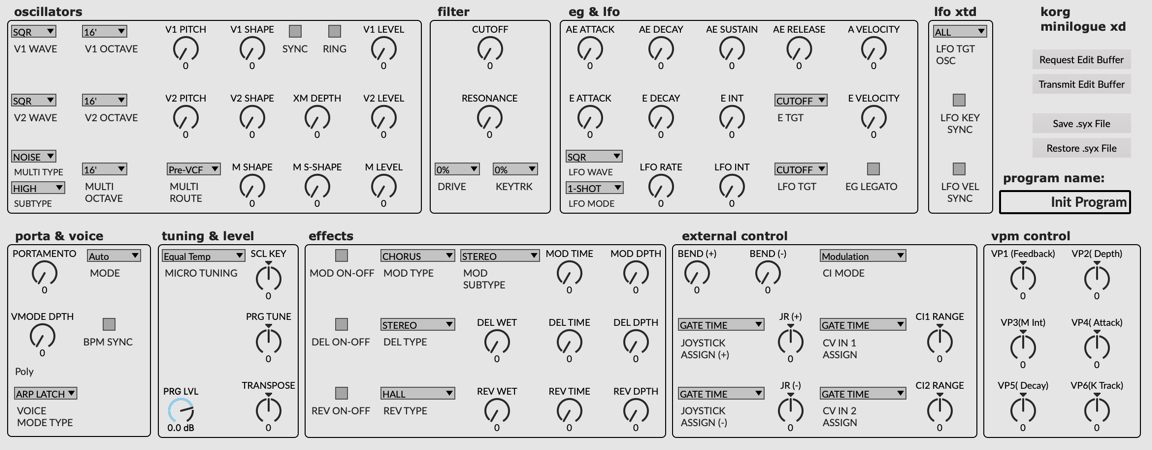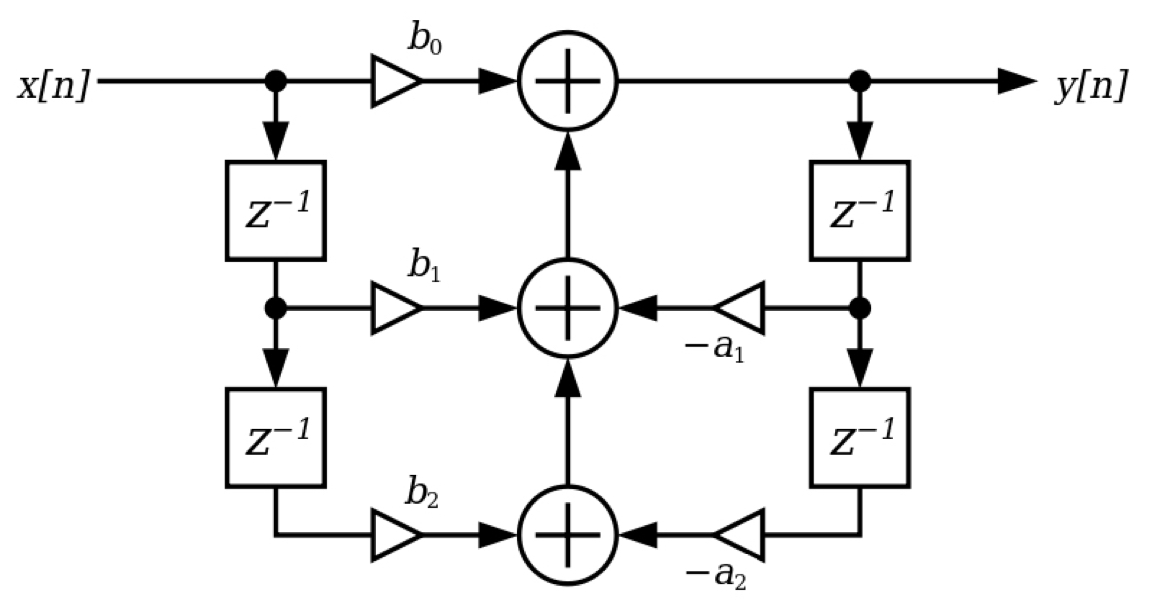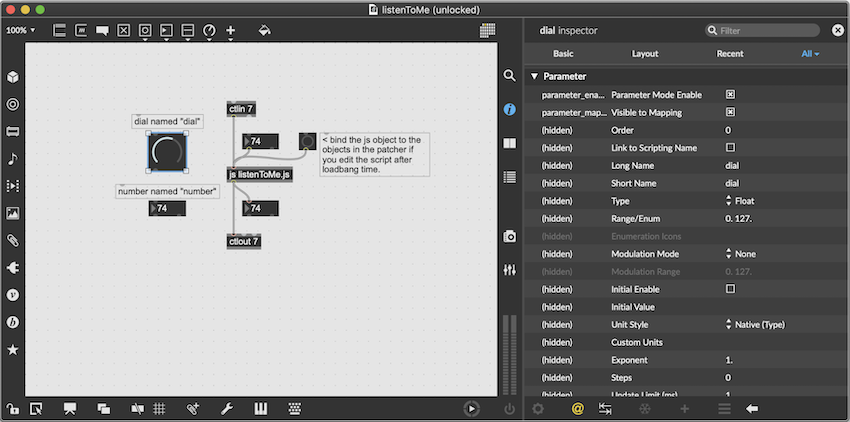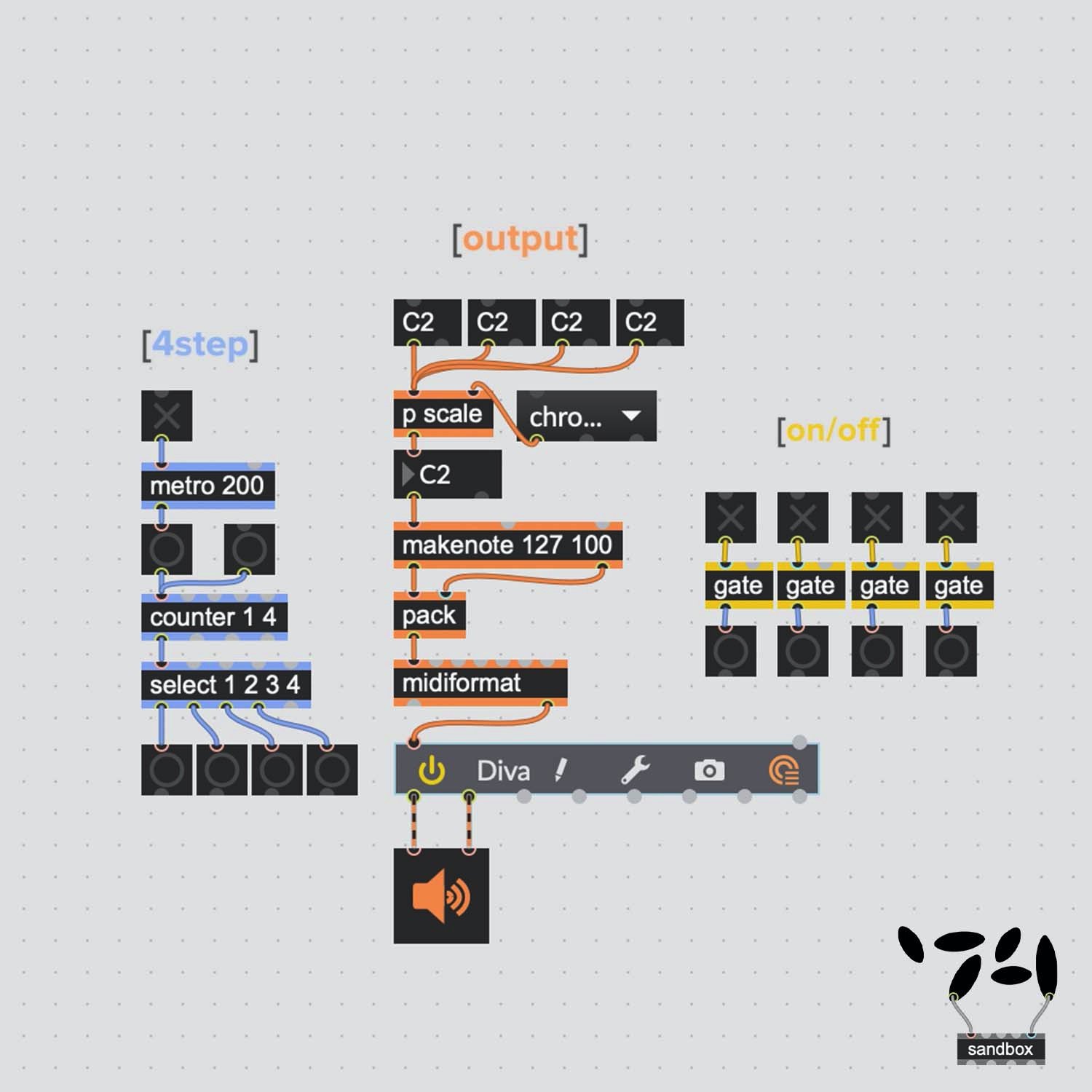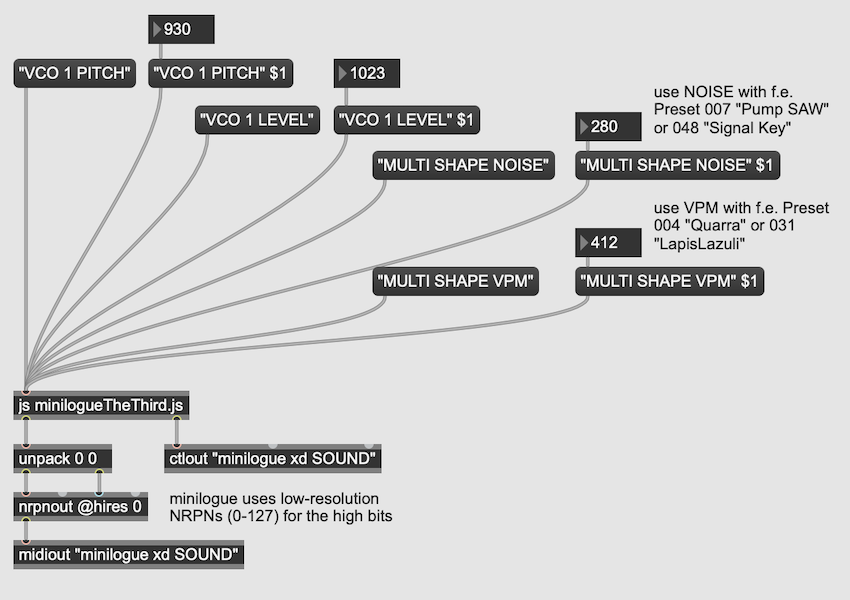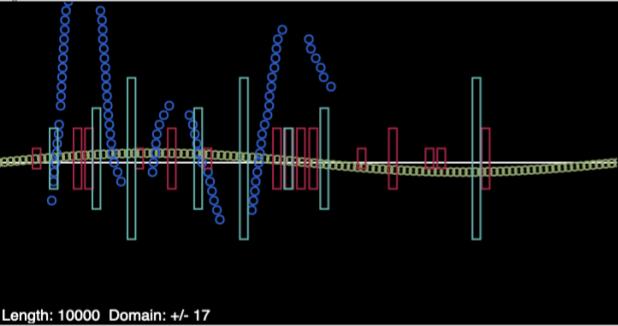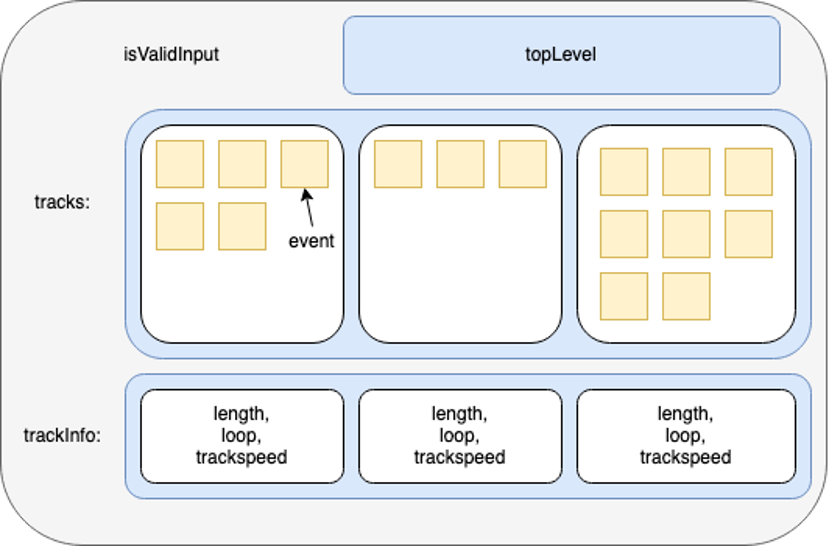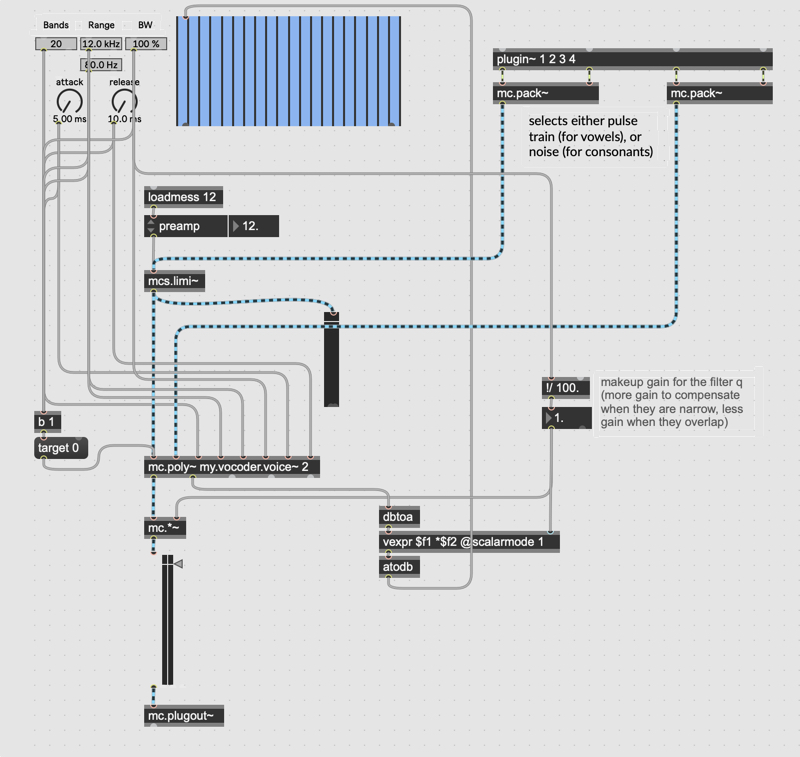Explore the Online Tutorials
Tutorials are an ideal way to accomplish a task, learn a new strategy or brush up on your skills. In addition to our in-app Examples, Tutorials and Help Files, you can find new ones here.
Building a Synthesizer Editor with JavaScript, Part 3
by Jeremy on February 2, 2021
For the third and final part of our series about building a synthesizer editor in Max with the help of JavaScript, we set about the task of...
A Walk Around the Block - An Introduction to gen~ and filtering
by Gregory Taylor on February 2, 2021
This tutorial will show a couple of simple examples of filters implemented in gen~ along with a neat trick that may help to make sense of...
Building a Synthesizer Editor with JavaScript, Part 2
by Jeremy on January 19, 2021
For the second part of our series on using JavaScript to create a MIDI-based editor for the KORG minilogue xd, I'm going to introduce the...
Building a Synthesizer Editor with JavaScript, Part 1
by Jeremy on January 6, 2021
In this tutorial series, I’m going to do a deep dive into designing a MIDI-based editor for a hardware synthesizer: the KORG minilogue xd....
The JavaScript-mtr Connection, Part 2
by Isabel Kaspriskie on December 8, 2020
Continue learning how to use JavaScript with mtr by making a graphical score of your data.
The JavaScript-mtr Connection, Part 1
by Isabel Kaspriskie on November 24, 2020
Learn all about decoding the contents of an mtr object's dump format using the js object, and extending JavaScript by creating a shared...
A Basic Vocoder Tutorial, Part 4
by Timothy Place on October 13, 2020
In the last tutorial of this series, I’ll take my vocoder to the next level by creating new options for carrier signals, and get my vocoder...
Video Series: Did You Know? (Series 2)
by Tom Hall on September 30, 2020
We're proud to announce a sequel to the original series of the Did You Know? There will be 52 videos for your amazement and enjoyment.
A Basic Vocoder Tutorial, Part 3
by Timothy Place on September 29, 2020
So far, we've patched a real-time analyzers (RTA) as the heart of our vocoder, and used a pair of them to create a mono vocoder. This time...

